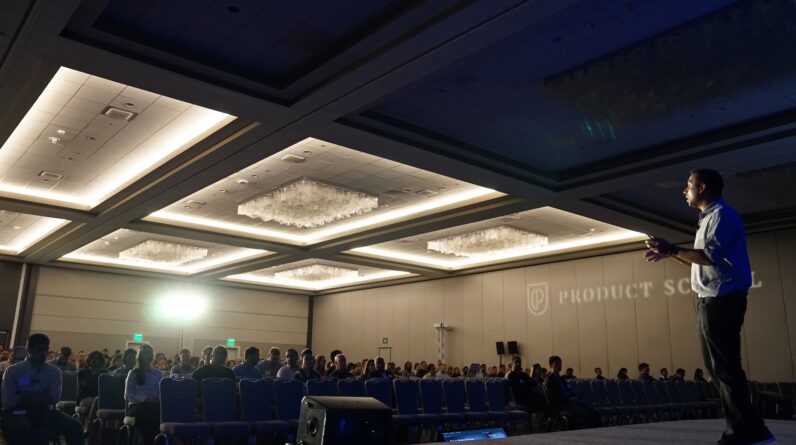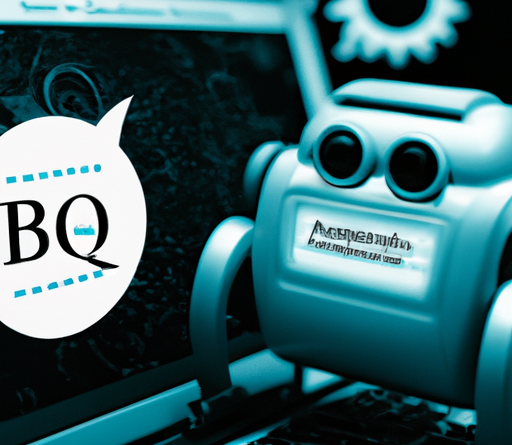
In this discussion, you’ll learn about the potential pitfalls of using automation for affiliate marketing blogs. While tools that automate blog creation can seem beneficial, they might also bring about potential drawbacks that could affect your blogging success. Prepare to unravel the reasons behind this perspective throughout this article.

Table of Contents
Defining Automation in Affiliate Marketing
Before we dive into the complexities of automation’s role in affiliate marketing blogs, it’s crucial first to establish what we mean by ‘automation’. In the simplest of terms, automation refers to the process of using various systems or software to execute tasks that would otherwise require manual effort. This can range from autoresponding emails, posting pre-scheduled content, and more relevant to our topic, auto-generating blogs using affiliate links.
Understanding Automation
If you’re in the business of affiliate marketing, automation is likely a term you’ve come across on more than one occasion. It’s perceived as a golden ticket to maximizing productivity — a way to perform tasks more efficiently without lifting a finger after the initial setup.
Affiliate Marketing Blogs Explanation
In the context of affiliate marketing blogs, automation mainly revolves around the use of software to generate or post content without human intervention. This often includes the positioning of affiliate links within these automatically generated posts. The rationale behind this is simple: it saves time, and theoretically allows the marketer to earn passive income.
Role of Automation in Affiliate Marketing Blogs
Efficiency and Convenience Brought by Automation
This isn’t to say automation doesn’t have its perks. Quite on the contrary, automation allows businesses to maintain a certain level of activity consistency, even when they’re not actively managing operations. This can translate into consistent income from affiliate marketing.
Use of AI in Autoblogging Software
The introduction of Artificial Intelligence (AI) in autoblogging software has added another layer to automation. Cloud-based software like Aiwisemind uses AI technology to create blogs embedded with your Amazon affiliate links and full product reviews, all on autopilot. These types of software tout high efficiency, easily churning out blog posts populated with relevant, SEO-friendly content.
Potential Positives of Automation
Increased Productivity
One of the significant benefits automation provides is increased productivity. By automating the repetitive, time-consuming tasks, you’re free to focus on other critical areas of your business.
Faster Output Generation
Another potential plus is the speed at which content can be produced. Autoblogging software can pump out blog posts much faster than a team of humans ever could — provided you’ve set the parameters correctly.
Efficient Management of Affiliate Links
The efficient management of affiliate links is another area where automation shines. Manual placement of these links can be tedious, prone to error, and take up a significant portion of your time.
Introduction to the Downsides of Automation
However, like anything in life, automation also comes with its fair share of downsides. This is particularly true when it comes to automating content creation for affiliate marketing blogs.
Preview of Common Negative Effects
In this discussion, we’re going to touch on some of the most common negative effects of automation. These encompass issues such as diminished quality of posts, lack of uniqueness and originality in content, reduced user engagement, among others.
Mention of Specific Issues in Affiliate Marketing Blogs
While automated affiliate marketing blogs might seem like the perfect solution for scaling your business, the reality tends to be quite different. Let’s delve into some of these specific problems next.
Problems with Uniqueness and Originality
Issue of Generic Content
Auto-generated blog posts often lack originality and uniqueness. Repetition of topics, use of similar keywords, and difficulty in customizing your content can lead to a generic blog that fails to capture your audience’s attention.
Lack of Personality and Human Touch
Perhaps the most glaring problem with automated blogging is the lack of a human touch. Think of your favorite bloggers and what keeps you coming back. Chances are, it’s their unique voice and personality that bring their words to life — a characteristic notoriously difficult for AI to replicate.
Diminished Quality of Content
Inconsistency in Quality
While autoblogging software can churn out large quantities of content, the quality can often be hit-and-miss. Even with the best AI technology, discrepancies are common, given that machines don’t fully understand nuances of human language.
Possible Grammatical and Technical Errors
It’s also important to anticipate unexpected errors cropping up in the AI-generated content. This could be in the form of grammatical mistakes, uncontextual use of words, or even formatting inconsistencies.

Lack of Human Engagement
Reduced User Engagement
Engagement is the lifeblood of a successful blog. But with automation, you could see a decline in reader engagement. Readers can easily spot auto-generated content, which lacks personality and engagement triggers, often leading to less interaction.
Absence of Personal Interaction
Blogs often thrive on the notion of community and interaction: comments, shares, likes. By fully automating your blog, the chances are that you’ll miss out on these personal interactions with your readers.
Risk of Dependency on Technology
Over Reliance on Autoblogging Software
There’s also the risk of becoming over-reliant on autoblogging software. If, for example, your software breaks down or faces technical difficulties, your business would be left in the lurch.
Potential Problems During Technical Disruptions
As we know, technology isn’t infallible. Downtimes, glitches, or even platform updates can disrupt automated processes, potentially leading to loss of income or damage to your brand reputation.
Ethical Considerations of Automation
Discussion on Intellectual Property Concerns
Automation raises a few critical ethical questions. One of the most significant is the issue of intellectual property. Is it moral, and is it legal, to use AI to churn out content that will mimic others?
Ethical Implications of Autonomous Content Creation
Finally, it’s worth discussing the broader ethical implications of autonomous content creation. How can we strike a balance between efficiency and authenticity? Where do we draw the line between helpful automation and depersonalized, cookie-cutter content?
The Impact on SEO Rankings
How Search Engines View Automated Content
Automation can also negatively impact your SEO rankings. Search engines, like Google, favor original, high-quality content that provides value to readers — something automated content often falls short of.
Negative Effects on Blog’s Search Engine Visibility
If your content is perceived as low-quality and unoriginal by search engine algorithms, this could significantly decrease your blog’s visibility.
The Loss of Learning and Development
Importance of Manual Creation of Blogs
The process of manually creating blogs comes with countless benefits that automation simply can’t replace. It allows you to discover what resonates with your audience and grants you the flexibility to adapt contents to the ever-changing trends.
How Automation Bypasses Learning Opportunities
Automation bypasses these learning opportunities. Sure, it saves time, but at the cost of missing out on key insights and the knowledge they bring.
Potential Solutions and Alternatives
Balancing Automation with Manual Efforts
Striking the right balance is key. Automation can be a useful tool, but it should be seen as a complement to manual efforts rather than a replacement.
Incorporating Human Review in Workflow
At the very least, incorporating regular human review in automated content workflows can help ensure quality and consistency, catch errors before they’re published, and address reader feedback in real time.
Case Study: Failure Due to Excessive Automation
Anecdotal Evidence of Automation Drawbacks
To illustrate some of these points, you don’t have to look far. There are numerous cases of blogs that have suffered from excessive automation, leading to critical mistakes and significant drops in reader engagement.
Lessons Learned
These cautionary tales highlight the perils of over-reliance on automation. They remind us to keep our audience at the forefront, prioritize quality over quantity, and to maintain a human touch in all our efforts.
Conclusion: Automation in Moderation
Summarizing Negative Implications of Automation
In conclusion, while automation can indeed be a powerful tool in affiliate marketing blogs, it’s not a panacea. As we’ve explored, there can be serious negative implications when relying too heavily on automated processes, from loss of individuality to drops in engagement and SEO rankings.
Final Thoughts on Right Balance Between Technology and Human Efforts
Like everything in life, it’s all about finding the right balance. Automation can undoubtedly enhance certain areas of your affiliate marketing blog by boosting productivity and managing affiliate links efficiently. However, the costs associated with overdoing it, like devaluing your content and potentially alienating your audience, may not be worth the trade-off. By striking a balance between technology and human efforts, you truly can have the best of both worlds in affiliate marketing.









